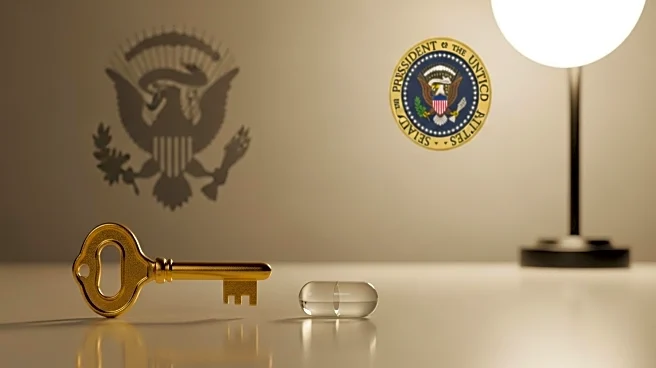What's Happening?
President Donald Trump announced a significant deal with Pfizer to secure most favored nation pricing for Medicaid patients on the company's existing drugs and for all Americans on its new drugs. This agreement aims to reduce the cost of prescription drugs for American patients, who have historically paid higher prices compared to other developed countries. The deal is part of Trump's broader strategy to negotiate directly with pharmaceutical companies, bypassing middlemen to achieve substantial savings for patients. The TrumpRx initiative, a direct-to-consumer pricing model, is expected to offer significant discounts on medications, potentially saving patients hundreds of dollars monthly.
Why It's Important?
The deal represents a major shift in how drug prices are negotiated in the U.S., potentially lowering costs for millions of Americans. By securing most favored nation pricing, the Trump administration aims to align U.S. drug prices with those in other developed countries, addressing long-standing disparities. This approach could lead to significant savings for Medicaid and other healthcare programs, reducing the financial burden on taxpayers. The initiative also challenges traditional pricing models, encouraging pharmaceutical companies to offer more competitive prices directly to consumers.
What's Next?
The Trump administration plans to expand the direct-to-consumer model to include more drugs and potentially other healthcare services. This could lead to further negotiations with pharmaceutical companies to secure similar pricing agreements. The success of this initiative may prompt other administrations to adopt similar strategies, potentially reshaping the pharmaceutical industry and healthcare policy in the U.S.
Beyond the Headlines
The direct-to-consumer model could disrupt existing pharmaceutical distribution channels, challenging the role of pharmacy benefit managers and other intermediaries. This shift may lead to increased transparency in drug pricing and encourage innovation in pricing strategies. However, it also raises questions about the long-term sustainability of such models and their impact on pharmaceutical companies' profitability.









